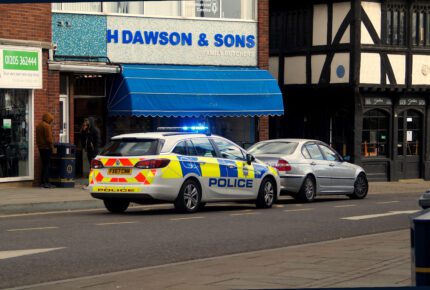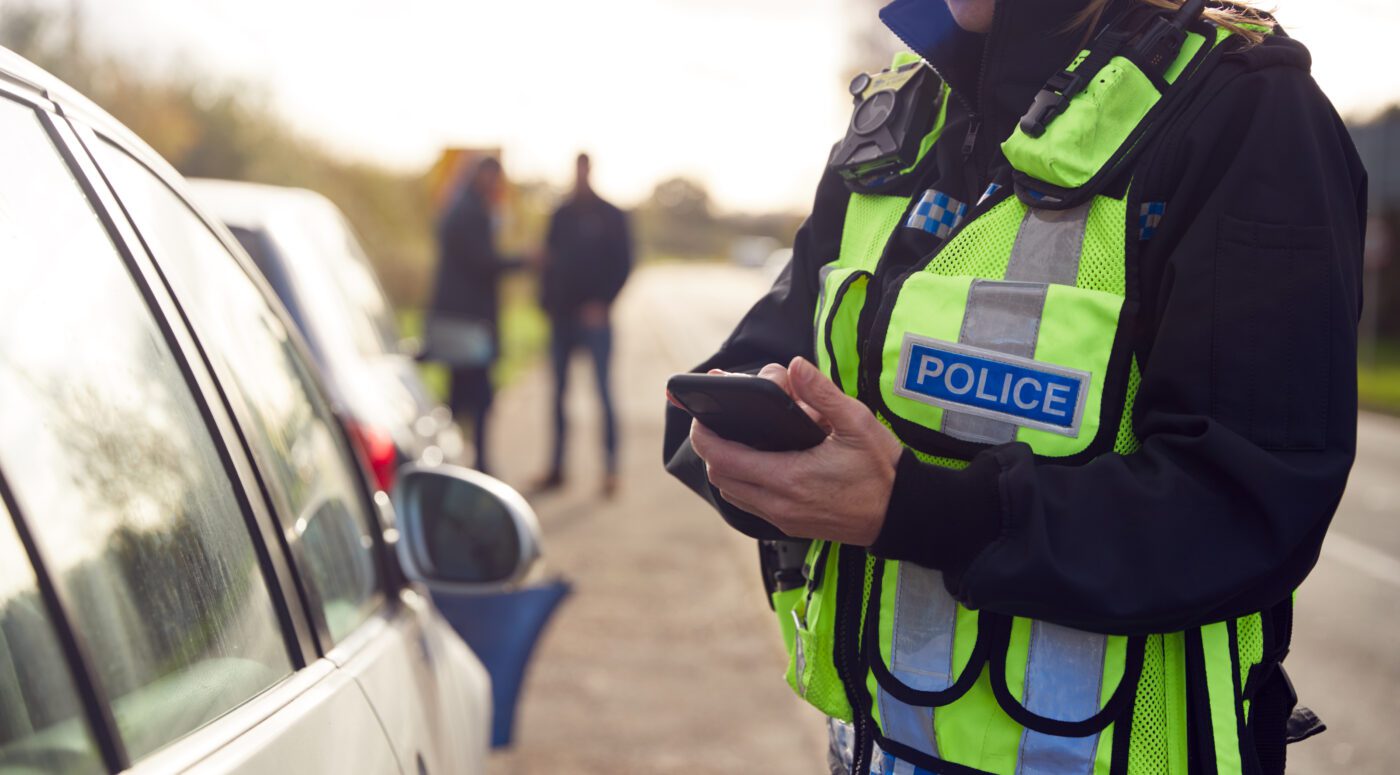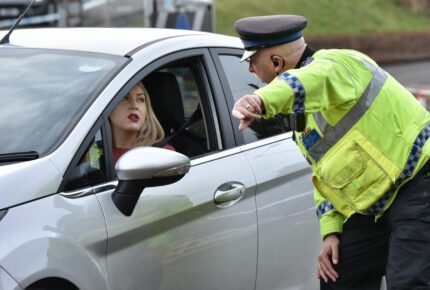

English criminal law seemingly has a never-ending list of offences related to driving, and failing to provide a specimen of breath is one of them. If you have been pulled over at the side of the road and the police suspect you have been drinking, they have the legal power to require you to provide a breath sample. Likewise, they have the power to require you to take a test at the police station in certain circumstances (such as the breathalyser being faulty). In either case, if you refuse to provide a sample upon request, you could face serious penalties. If this has happened to you, you may be experiencing considerable stress in trying to understand what happens next and whether you might face potential fines, bans, or other punishments for the offence. In this article, we look at the offence of failing to provide a specimen of breath in the context of driving offences, including what the offence is, whether there are any legitimate reasons to refuse a test, what the sentence or punishment might be if you get convicted, and where you can go for legal help.
What is the failing to provide a specimen of breath offence?
Section 6(6) of the Road Traffic Act 1988 gives the police the power to demand a breathalyser test at the side of the road if they have pulled over a driver they suspect to be under the influence of drunk or drugs. If the results of that test indicate you could be intoxicated, or if for whatever reason the police are unable to obtain a test results from you at the side of the road (whether due to your actions or a faulty breathalyser), then they can require another round of tests to be performed at the police station (or the hospital, if applicable) under Section 7(6) of that same Act.
If you refuse to provide a specimen of breath in either of these circumstances, you risk being found guilty of an offence under the Road Traffic Act and accordingly will face serious consequences (including fines and disqualification from driving). The two offences are named as follows:
- Failure to Cooperate with a Preliminary Test under Section 6 (The Roadside Test)
- Failure to Provide Specimen for Analysis under Section 7 (The Police Office Test)
Can the police demand a breathalyser test from anyone?
In order to demand a preliminary specimen of breath for analysis test at the side of the road, the police must have reasonable grounds. This means that they cannot pull anyone over without there being a justifiable reason for it (although racial discrimination has unfortunately played a part in many police decisions to pull someone over).
Reasonable grounds include:
- Someone driving erratically, unpredictably, or driving in such a way that they are obviously committing a traffic offence (such as driving through a red light or driving on the pavement)
- Someone being involved in a road traffic accident, regardless of whether the police saw the accident or not
- Someone acting intoxicated (such as stumbling, incoherent speech, inability to focus, etc.) when pulled over by the police
Do the police charge you after the first breathalyser test?
This first breathalyser test is called a ‘preliminary specimen of breath for analysis’ and is precisely that – preliminary. What this means is that the test result taken at the side of the road will not be fully conclusive and will not result in penalties by itself. Rather, a test result indicating the driver might be under the influence will instead give rise to requests for further tests at the police station (or the hospital, if the driver is in an extremely intoxicated state or has been in a traffic accident).
Are there any legitimate reasons to refuse to provide a breath sample?
Some people do actually have valid reasons for refusing a breathalyser test. If you think this applies in your case, know that you should have substantial evidence to back up any claim to this effect. Without it, you are highly unlikely to be let off the hook.
Permissible reasons to refuse a breathalyser test include:
- Suffering from a medical condition or impairment that would make providing a sample difficult or dangerous (such as severe asthma, broken ribs, lung cancer, and so on)
- Suffering from a serious anxiety or panic disorder that makes it difficult or dangerous to provide a sample in the events
If you know your legal rights well, you can also refuse to provide a sample if you believe (and, again, have evidence to show) that the police are not following the proper procedure while attempting to conduct the test. Highly unlikely, but obvious, examples include where the police officer does not change or sterilise the breathalyser mouthpiece when testing multiple people, or where everyone knows the breathalyser is damaged or faulty, but the police try to make you use it anyway.
Note that if the police do not inform you that your failure to provide a sample may result in prosecution, you may have grounds to have the case thrown out in court. In this instance, you are still going to have to go through the process of being asked to take the test and the prosecution against you may still proceed, but you will be able to challenge the case against you on technical grounds later on.
Is it possible to delay the breathalyser test?
Breathalysers are typically portable test units because it is imperative that the police record your alcohol levels as accurately as they can at the time of the alleged offence. As such, it is not permitted for you to elect or opt to take the test at a later time (even if just a few hours later) because by that time the alcohol will be lower in your system. Tests must be taken at the time the police demand them.
What is the sentence for failing to provide a specimen of breath?
The sentence for failing to provide a specimen of breath depends on when/where you failed to provide the test.
If you were asked to take a test on the side of the road under Section 6(6) of the RTA 1988, then you can face a fine and discretionary disqualification, or 4 penalty points, if found guilty.
If, however, you were asked to take a test at the police station or hospital after that preliminary test (under Section 7(6) of the RTA 1988), then you will face the much more serious consequences of a fine and a mandatory disqualification of at least one year, plus the potential for community service or imprisonment. If a person has a previous drunk driving conviction within the past 10 years, then the minimum disqualification will be 3 years. Note that if the Section 7(6) charges comes from the offender being drunk in charge of a motor vehicle or if the person was not actually driving, the court may choose a lesser punishment of 10 penalty points or a shorter disqualification.
It is important to note that the court may choose from a range of different punishments and sentences to more appropriately reflect the culpability (blameworthiness) of the defendant.
The following factors will lead to a harsher sentence:
- Previous convictions of the offender
- The offender being on bail while the offence was committed
- The offender failing to comply with existing court orders (such as existing driving bans)
- The offence being committed on licence or post sentence supervision
- The offender being an LGV, HGV, PSV or similar driver
- There being poor road or weather conditions at the time of the offence
- The offender carrying passengers
- The offender being involved in accident
- There being a high level of traffic or pedestrians in the vicinity of the offence
Likewise, certain factors will lead to a lesser sentence:
- The offender having no previous convictions or no relevant/recent convictions
- The offender showing remorse
- The offender having good character and/or exemplary conduct otherwise
- The offender suffering from a serious medical condition requiring urgent, intensive, or long-term treatment
- The offender being especially young or having a lack of maturity
- The offender having a mental disorder or learning disability
- The offender being the sole or primary carer for dependent relatives
Where to get further help?
If you have been charged with the failure to provide a specimen of breath, get in touch with an experienced team of criminal defence solicitors at the earliest possibility (which will usually be the police station). Getting help early on will ensure that you stand the best possible chance of having the case dropped before trial, and it can even help you to catch any potential procedural issues that might lead to your case being thrown out on a technicality. The team at Stuart Miller Solicitors have decades of experience handling motoring offences and can be contacted 24/7 in the event you need legal assistance.
